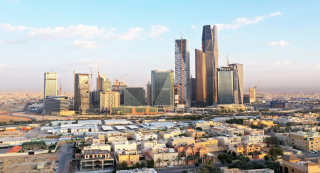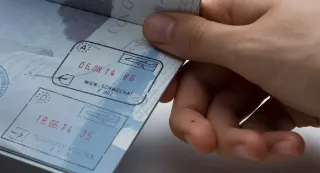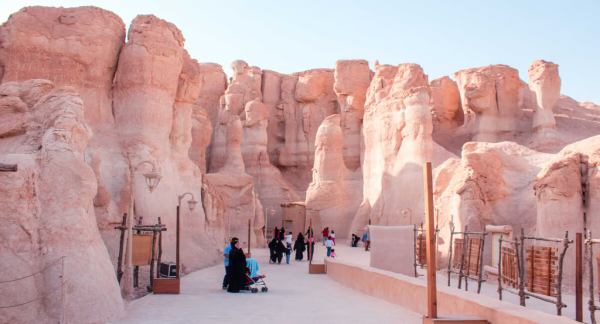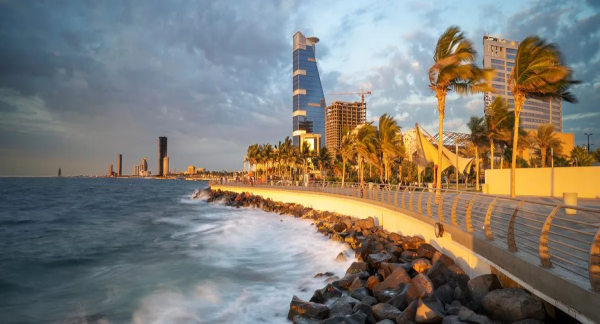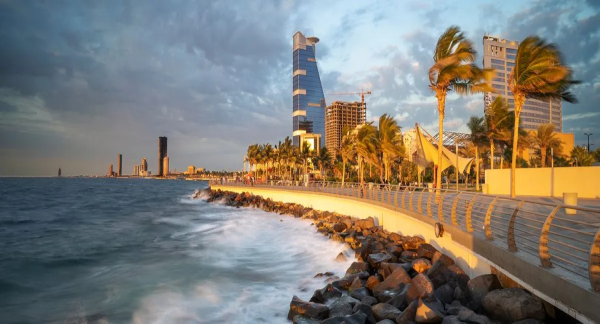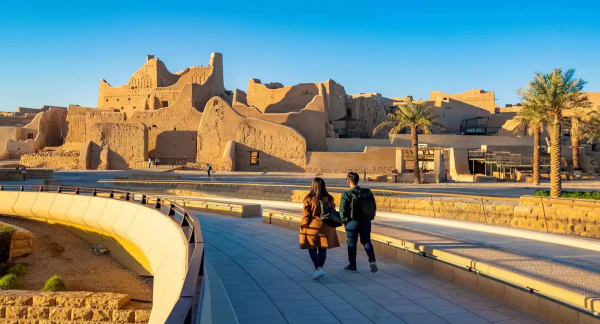Everything You Need to Know About Saudi Arabia Visas
Planning a trip to Saudi Arabia? You're choosing an exciting time to visit! Once one of the world's most closed-off countries, Saudi Arabia has recently thrown open its doors to international tourists, offering a chance to explore ancient archaeological sites, modern cities, and stunning desert landscapes that few travelers have seen. If you're planning a trip to Saudi Arabia, understanding the visa process is essential. For a hassle-free application, visit our Saudi Arabia visa page for step-by-step guidance.
Understanding Saudi Arabia visa requirements has become much simpler thanks to recent changes under Vision 2030, the kingdom's ambitious plan to diversify its economy and boost tourism. Whether you're dreaming of exploring the historic streets of Al-Ula, attending a business conference in Riyadh, or embarking on a spiritual journey to Mecca, getting the right visa is your first step.
The visa application process has been dramatically modernized, with most applications now handled through an efficient online system. Unlike the past, when visas were primarily limited to business travelers and religious pilgrims, Saudi Arabia now welcomes tourists from many countries with a straightforward eVisa system.
Who needs a visa? Generally, you'll need one if you're:
- Coming for tourism or leisure
- Conducting business meetings
- Performing Umrah or Hajj
- Working or studying in the Kingdom
- Visiting family or friends
The good news is that Saudi Arabia's visa system, while thorough, has become increasingly user-friendly. The Kingdom now offers multiple visa types to suit different travel purposes, and many can be obtained entirely online without visiting an embassy.
Recent changes have made the country particularly welcoming to international visitors. These include the introduction of the tourist eVisa, relaxed dress codes, and the ability for single women to travel without a male guardian. The Kingdom has also invested heavily in tourism infrastructure, from new hotels to entertainment venues, making it more accessible than ever for international visitors.
Throughout this guide, we'll walk you through everything you need to know about securing your Saudi visa – from choosing the right visa type to gathering your documents and ensuring a successful application. We'll also cover important cultural considerations and recent policy changes that might affect your visit.
Planning to study in Saudi Arabia? The Saudi Student Visa provides international students the opportunity to enroll in universities and institutions across the Kingdom while adhering to specific sponsorship and residency requirements.
Let's explore each type of Saudi Arabia visa to help you understand exactly which one matches your needs. Since the Kingdom's opening to tourism, several options are now available for different purposes of visit.
The newest and most accessible of all types of Saudi Arabia visa, the tourist eVisa offers remarkable flexibility. Valid for one year with multiple entries, it allows stays of up to 90 days per visit for tourism and family visits. The entire application process happens online, typically taking just 24-72 hours for approval. Whether you're applying for a Saudi Arabia tourist visa from the USA or elsewhere, there's mandatory medical insurance involved and it allows you to book accommodations, rent cars, and travel freely within tourist areas. One of its biggest advantages is that it doesn't require a local sponsor, making it perfect for independent travelers.
Business Visa
The business visa caters to those engaging in commercial and professional activities in Saudi Arabia. Usually valid for six months to one year, the Saudi Arabia business visa allows for multiple entries and covers activities like business meetings, conferences, and trade fairs. You'll need a formal invitation letter from a Saudi company, along with documentation from your own business, whether you're getting the Saudi Arabia business visa from USA or elsewhere. This visa requires more extensive documentation than the tourist visa, including company letters, commercial registration copies, and a detailed business schedule.
Work Visa
If you're planning to work in Saudi Arabia, you'll need a work visa, which initially provides 90 days to enter the country. Upon arrival, it must be converted to an Iqama (residence permit). Whether you're getting the Saudi Arabia work visa from the USA or another country, this process requires employer sponsorship and includes the possibility of sponsoring family members. You'll need to provide an employment contract, educational qualifications, and professional certificates. Remember, the Saudi Arabia work visa involves a thorough process including security clearance and medical examinations.
Umrah Visa
For those planning religious pilgrimage outside the Hajj season, the Saudi Arabia Umrah visa provides a 30-day stay with single entry. This visa has specific requirements regarding travel packages and accommodations, and you must enter through designated airports. First-time pilgrims can obtain this visa free of charge. The application process involves working with approved travel agencies and meeting specific vaccination requirements.
Premium Residency
Saudi Arabia's Premium Residency program offers a long-term solution for investors and specialists. Available in both permanent and temporary (renewable) formats, it provides unprecedented freedom within the Kingdom. Unlike other visas, it doesn't require a sponsor and includes rights to own businesses and property. Eligibility criteria are stringent, requiring substantial financial capabilities, a clean criminal record, and comprehensive health insurance coverage.
Special Visit Visa
Special visit visas address unique circumstances such as government invitations, medical treatment, educational purposes, or family reunion (in this case, the Saudi Arabia family visit visa or Saudi Dependent Visa). The duration and requirements vary based on the specific purpose, and some cases may require a local sponsor. These visas are usually single-entry and require purpose-specific documentation, though extensions are possible in certain situations.
Important Considerations
Processing times vary significantly between visa types, from just a few days for eVisas to several weeks for work visas. Luckily, if you're from one of the few eligible countries, you can get a Saudi Arabia visa on arrival. All visas require a valid passport with at least six months of validity, recent digital photos, and proof of accommodation. You'll also need to demonstrate financial capability and provide return tickets.
Cultural awareness plays a crucial role in any visit to Saudi Arabia. Regardless of visa type, visitors must respect local customs, including dress codes and prayer times. During Ramadan, special considerations apply to all visitors, and gender segregation rules should be understood and respected.
Remember that your chosen visa type must align perfectly with your planned activities in Saudi Arabia. The authorities take visa regulations seriously, and engaging in activities not permitted by your visa type can result in severe consequences, including deportation and future travel restrictions.
When selecting your visa type, consider your length of stay, primary purpose of visit, need for multiple entries, and whether you require sponsorship. Each type has specific requirements and limitations, so thorough research is essential before applying.
When in doubt, consulting with the Saudi embassy or a reputable visa service can help ensure you choose the right category for your needs. This will also help you avoid making plans based on presumed exemptions for the Saudi Arabia visa for US citizens or other nationalities, which could be wrong.
Choosing between a Multiple-Entry Visa and a Single-Entry Visa depends on your travel needs. While a single-entry visa allows one-time access, a multiple-entry visa offers flexibility for those who frequently visit Saudi Arabia for business or personal reasons.
Foreign investors looking for long-term opportunities can explore the Saudi Investor Visa, which provides residency benefits for business owners and investors contributing to the Kingdom’s economy.
How to Renew a Saudi Visa Before It Expires
If you're staying in Saudi Arabia and your visa is nearing expiration, it’s essential to understand the Saudi visa renewal process to avoid legal issues. Whether you're renewing a residency permit (Iqama) or extending a visit visa, our Saudi Visa Renewal guide outlines the steps, fees, and important deadlines to keep in mind.
Saudi Visa Stamping: A Crucial Step in the Process
Visa stamping is an important requirement for travelers whose visas are issued through embassies or sponsorships. If you’re unsure about the Saudi visa stamping process, our detailed Saudi Arabia Visa Stamping Process article explains everything from document submission to passport retrieval.
Checking the Status of Your Saudi Visa Online
Wondering if your visa has been approved? The Saudi government offers an online visa status check service to help applicants track their application progress. Learn how to check your Saudi visa status online with step-by-step instructions for different types of visas.
Saudi Visa Guidelines for GCC Residents
If you're a GCC resident, you may be eligible for a faster and more simplified visa process when traveling to Saudi Arabia. Our Saudi Arabia Visa for GCC Residents guide breaks down the eligibility criteria, required documents, and entry conditions for Gulf Cooperation Council nationals.
Common Reasons for Saudi Visa Rejections & How to Avoid Them
Visa denials can be frustrating, especially if you’re unaware of the common reasons for Saudi visa rejections. Whether it’s incomplete documents, mismatched information, or background checks, our Avoid Saudi Visa Rejection guide explains how to prevent visa refusal and improve your chances of approval.
Overstaying a Saudi Visa: Fines & Consequences
Visitors must adhere to their visa validity period to avoid legal penalties. Overstaying a Saudi visa can result in heavy fines, deportation, or travel bans. If you’ve stayed beyond your visa’s expiration, our Overstaying a Saudi Visa: Fines & Consequences guide details the penalties and possible solutions.
Converting a Tourist Visa into a Work Visa in Saudi Arabia
Many expatriates initially enter Saudi Arabia on a tourist visa and later decide to switch to a work visa. However, this transition is subject to strict rules. Find out the legal procedures and employer sponsorship requirements in our Changing from a Tourist Visa to a Work Visa in Saudi Arabia guide.
Who Can Enter Saudi Arabia Without a Visa?
While most travelers need a visa, certain nationalities and categories qualify for visa-free entry to Saudi Arabia. Our Visa-Free Entry to Saudi Arabia: Who Qualifies? guide explains the eligibility criteria, stay duration, and travel conditions for visa-exempt visitors.
Let's dive into exactly what different nationalities need to enter Saudi Arabia, with special attention to recent changes that have made the Kingdom more accessible to international visitors. Understanding these requirements will help you plan your trip more effectively.
For American travelers, the Saudi Arabia visa for US citizens process has become remarkably straightforward. U.S. passport holders can apply for an eVisa online, typically receiving approval within 24-72 hours. Americans can then get a Saudi Arabia visa from USA and enter the kingdom for tourism, business meetings, or family visits using this eVisa, which remains valid for one year and allows multiple entries with stays of up to 90 days per visit. However, if you're planning to work or study in Saudi Arabia, you'll need to apply for the appropriate visa type regardless of your American citizenship.
Residents of Gulf Cooperation Council (GCC) countries enjoy special privileges when visiting Saudi Arabia. If you're a legal resident of the UAE, Bahrain, Kuwait, Oman, or Qatar, you can apply for a special visitor visa that's often processed more quickly than other types. This arrangement is particularly beneficial for business travelers and professionals working in the Gulf region. However, it's important to note that this applies to residents, not citizens, of these countries – the rules for GCC citizens are even more favorable.
The list of Saudi visa exempt countries is quite small, primarily limited to citizens of Bahrain, Kuwait, Oman, and the UAE. These GCC citizens can enter Saudi Arabia using just their national ID cards, without needing a visa. However, even these travelers need to register their entry through official channels and may need additional documentation for certain activities like work or study.
Special considerations apply to Muslims planning to visit the holy cities of Mecca and Medina. Regardless of nationality, Muslim visitors need specific visas for Umrah or Hajj pilgrimages. These visas have their own set of requirements and can only be obtained through authorized agents. Non-Muslims should note that Mecca and Medina remain restricted cities, accessible only to Muslim visitors.
Business travelers face additional requirements regardless of nationality. While the Saudi Arabia eVisa system has simplified tourist entry, business activities often require invitation letters from Saudi companies and more extensive documentation. This applies even to nationalities that might have easier access for tourism purposes. Whether you need a tourist, business, or family visit visa, our Saudi visa application service helps streamline the process
Recent changes have made visiting Saudi Arabia easier for women travelers. Unlike in the past, adult women can now travel independently without requiring a male guardian's permission or accompaniment. However, all visitors should be aware of and respect local customs and dress codes, which apply regardless of nationality.
For long-term stays or employment, nationality plays a significant role in the visa process. Some countries have bilateral agreements with Saudi Arabia that streamline work visa procedures, while others might face more stringent requirements. The Premium Residency program, while open to all nationalities, has substantial financial and professional requirements that must be met regardless of citizenship.
Keep in mind that visa requirements can change quickly, often in response to diplomatic relations or public health situations. What was true last year might not be true today. Always verify the current requirements through official channels, such as the Saudi embassy in your country or the official Saudi eVisa portal, before making travel plans.
Political relations between countries can affect visa processing times and requirements. Some nationalities might face additional security checks or documentation requirements. However, Saudi Arabia's recent push for tourism under Vision 2030 has generally led to more standardized and transparent visa procedures across nationalities.
Remember that having a valid visa doesn't guarantee entry into Saudi Arabia. The final decision always rests with immigration officers at the port of entry. Being well-prepared with all necessary documentation and having a clear purpose for your visit will help ensure a smooth entry process, regardless of your nationality. And as always, ensure you have enough funds for the Saudi Arabia visa fees when you apply.
If you’re an Iqama holder and need to travel outside Saudi Arabia temporarily, the Saudi Exit/Re-Entry Visa process ensures your legal re-entry without issues. Knowing the validity and renewal rules can help you avoid complications.
Understanding Saudi Arabia Visa Processing Time
Many travelers planning to visit the Kingdom often wonder, how long does it take to get a Saudi visa? The timeline varies depending on the visa type, nationality, and the method of application. Our Saudi Arabia Visa Processing Time guide provides insights into standard processing durations and factors that may cause delays.
Country-Specific Saudi Visa Requirements
Visa application processes and requirements can vary based on nationality. If you're applying from a specific country, check our tailored guides for your region:
If you prefer personalized guidance or find the online application process intimidating, consider a reputable visa agency like VisaTitans.
Agencies offer valuable expertise in navigating the complexities of the Saudi Arabian visa system with a proven Saudi work visa track record.
They ensure your application is complete and accurate, track your visa status, and often have established relationships with consular offices that can help streamline the process. Visa agencies typically charge a service fee in addition to the official visa cost.
Understanding eligibility for Saudi visas starts with determining whether your country is among the eligible countries approved for different types of entry permits. Each person must submit their request with careful attention to detail, as Saudi Arabia maintains strict entry controls, particularly regarding sensitive subjects like drug trafficking, which can result in permanent entry bans. The application process requires valid passports with sufficient validity and proper documentation, varying based on the purpose of visit and nationality.
The modernization of Saudi Arabia's visa system has largely eliminated the need to mail physical documents, though some specialized visas might still require hard copies. During the application process, an applicant's passports and supporting documents are carefully screened, with special attention paid to any previous travel history or security concerns. The Kingdom takes a serious stance on preventing illegal activities, particularly drug trafficking, implementing thorough background checks for all visas regardless of the type or duration of stay requested.
These measures ensure that each person entering Saudi Arabia meets the country's strict entry requirements while facilitating legitimate travel for approved purposes. Whether submitting your request through the electronic system or, in rare cases, by mail, understanding these requirements is crucial for a successful application. The process demonstrates Saudi Arabia's commitment to balancing increased openness to international visitors with maintaining strong security measures, ensuring that all subject areas of concern are properly addressed during the visa issuance process.
Can Women Travel to Saudi Arabia Alone?
Saudi Arabia has specific travel regulations for female visitors, especially regarding solo travel and guardianship requirements. If you’re a woman planning a trip to the Kingdom, our Can Women Travel to Saudi Arabia Alone? Visa & Rules guide provides essential insights on entry policies and cultural expectations.
Saudi Visa Rules for Minors & Children Traveling Alone
Minors traveling to Saudi Arabia, whether alone or accompanied by one parent, must comply with specific visa regulations. Our Saudi Visa Rules for Minors & Children Traveling Alone guide details the necessary documents, parental consent forms, and visa application steps for young travelers.
Hajj Pilgrimage Visa Requirements
Every year, millions of Muslim pilgrims travel to Saudi Arabia for Hajj, one of the most significant religious events in Islam. If you're planning your pilgrimage, our Saudi Visa Requirements for Hajj Pilgrims guide covers all the essential details, including visa categories, quotas, and travel restrictions.
Saudi Arabia Transit Visa: Who Needs It & How to Apply
If you're passing through Saudi Arabia on your way to another destination, you may need a Saudi Arabia Transit Visa. Learn who qualifies, how to apply, and the requirements to ensure a hassle-free journey.
Saudi Arabia Medical Visa
For those seeking medical treatment in the Kingdom, the Saudi Arabia Medical Visa is essential. Discover the eligibility criteria, required documents, and the application process for accessing healthcare in Saudi Arabia.
Saudi Arabia Residence Permit (Iqama) vs. Visa
Understanding the difference between a Saudi Arabia Residence Permit (Iqama) vs. Visa is crucial for expatriates. Learn about the key distinctions, benefits, and requirements for each to determine which one suits your needs.
